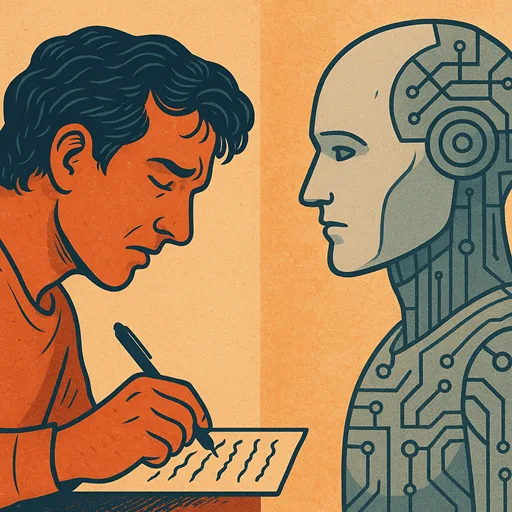The rise of AI writing assistants like ChatGPT has sent shockwaves through the world of content creation. What once required hours of research, drafting, and polishing can now be done in minutes by an algorithm. For many freelance writers, copywriters, and even seasoned tech writers, this has sparked an existential question:
Will AI make human writers obsolete?
The Case for Obsolescence
AI tools like ChatGPT can:
- Write thousands of words per day, on virtually any topic
- Imitate countless writing styles and tones
- Perform grammar, fact-checking, and SEO optimization instantly
- Produce polished articles that rival those of professionals
For businesses focused on efficiency, speed, and scalability, AI is a dream come true. For writers who have spent years honing their craft, it’s a threat that’s hard to ignore.
Platforms once thriving with human-generated content – blogs, product documentation, social media—are increasingly AI-assisted or even fully AI-produced. This shift is causing upheaval in industries that once offered stable incomes to skilled writers.
But Can AI Truly Write Like Humans?
Despite AI’s growing capabilities, there’s one thing it consistently lacks: emotionally resonant creativity.
AI can simulate tone, structure, and sentiment – but it cannot truly feel. Its writing is trained on what already exists; it cannot draw from a lived experience, heartbreak, triumph, or personal revelation.
Writers possess emotional nuance, raw vulnerability, and a moral compass that AI doesn’t. Human writing can be flawed, irrational, and poetic – all things AI is programmed to avoid. That’s where the future of writing may be headed.
The Rise of “Futuristic Emotional Writing”
There’s a compelling theory that a new form of human writing could emerge – a hyper-emotive narrative style that defies AI emulation.
This writing could involve:
- Asymmetrical sentence structures driven by pure emotion
- Symbolism that breaks grammatical rules
- Streams of consciousness infused with cultural and psychological depth
- Improvised metaphors not found in any training dataset
In this world, human writers become less like typists and more like emotional architects -crafting expressions so uniquely human that AI can only imitate, never originate.
Tech Writers: Adaptation Over Extinction
As a tech writer, your value isn’t just in writing – it’s in interpretation, simplification, and contextualization of complex information. AI can assist, but not replace, the trust and reliability that comes from a human being who understands both the tech and the user.
The future for tech writers might look like this:
- Human + AI collaboration, where AI handles drafts, and writers refine for clarity and trust
- Shifting to narrative UX writing, product storytelling, or AI ethics communication
- Embracing specialized roles in cybersecurity, compliance, and regulated content creation
Conclusion
Yes, AI will change the writing landscape – and many writers who rely solely on their ability to produce words may feel that impact first. But writing isn’t dead. It’s evolving.
The human voice is still needed – especially one that is vulnerable, raw, or poetic in a way no machine can authentically replicate. Writers who lean into this emotional and creative frontier may not just survive—they may lead the way.


